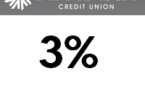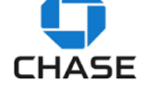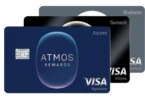Voiceprinting is the practice of recording a customers voice and then matching that voice to previous recordings to ensure the same voice is calling each time. Both J.P Morgan Chase & Wells Fargo Co use this technology to help prevent fraud, according to a report by the Associated Press.
The banks can also use this same technology to create a blacklist of criminals that have used personal data of a customer in the past to access their accounts. There is also some evidence to suggest that financial institutions would share this blacklist amongst themselves to reduce fraud rates across the board.
I’m not sure how I feel about this type of data being used, Chase have stated that they don’t use this technology on their customers (but didn’t comment on whether they use it for building a blacklist) and it’s already common knowledge that your calls to a financial institution are recorded. On the other hand I can’t help but feel this is an invasion of privacy.
Within a few months we see a 90 percent reduction in the types of calls these fraudsters are making
Mark Lazar, a vice president at Verint Systems Inc







They should ask their “clients” before activating such features, but of course, most people would probably say “NO THANKS” and not due to privacy, but probably in fear of being charged for an extra feature that isn’t clearly understood by the average consumer, therefore the secrecy behind it’s implementation.
How about when you’re calling from a landline vs voip vs a bad cell connection? Each of those can make you sound different. As long as they will accept answers to the usual security questions in addition to the voiceprint for authentication, it’s not so bad.
They already record the calls, so who cares if they do some extra processing to help reduce fraud? If it reduces their costs, that leaves more money for the marketing dept to spend on cc perks!
I wonder how resilient this technology is to alterations in somebody’s voice stemming from a cold or something.
Also, Vanguard does this – but with your consent. You can use your voice as biometric authentication during phone calls. To calibrate you repeat “At Vanguard, my voice is my password.” a bunch of times.
Biometrics is an inevitability and the future of identity verification, but i feel consumers should at least have an ability to opt out if they have concerns this new data could be stolen or abused down the road. If that means going through additional manual verification steps on your account, fine. I am pro technology for solving real problems for the benefit of all and understand a company’s hesitancy to publicize it since bleeding edge stuff creeps people out due to sheer ignorance. Still no company should make the use and sharing of such data deliberately secret.
I agree on all points!
Great tools, but let me in on it as a consumer and better yet, opt out by default unless you have clear consent to store my bio data into your servers. I wish someone with legal background could chime in whether something like this is legal for a private company to do, that is to store consumers bio data for identification (voice print) without their consent.
Well they do let you know its a recorded line now thanks to past class action lawsuits. They need to be forward about what it is they use it for instead of “quality assurance purposes” which is so vague it’s silly. Not sure what legal precedent biometric data mining has, but I’m sure one is about to be set here soon.